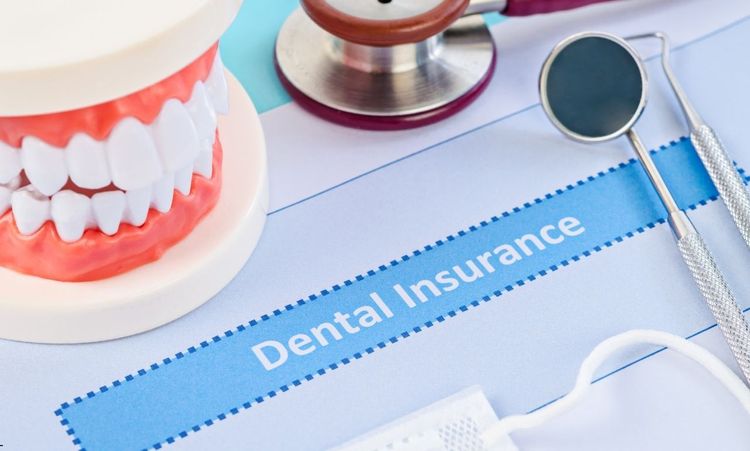Tooth loss is a common issue among older adults, significantly impacting their quality of life, confidence, and overall health. One of the most effective and popular solutions to this problem is dental implants, providing long-term results and reliable functionality. However, the price of dental implants can often be a concern, particularly for seniors who are retired and living on fixed incomes.
What Are Dental Implants?
Dental implants are titanium screws surgically inserted into the jawbone, acting as artificial tooth roots. These implants support crowns, bridges, or dentures, effectively replacing missing teeth. Dental implants provide a permanent solution that closely mimics natural teeth, restoring appearance, chewing ability, and overall oral health.
Components of Dental Implants
A dental implant typically consists of three main parts:
- Implant: Titanium post surgically placed into the jawbone.
- Abutment: Connector between the implant and the replacement tooth.
- Crown: Custom-made tooth that attaches to the abutment, designed to match natural teeth in appearance and functionality.
Factors Affecting the Cost of Dental Implants for Seniors
When evaluating the overall price of dental implants, it is essential to consider various factors contributing to cost differences.
Number of Implants Required
The total cost directly depends on how many implants a patient needs. Replacing a single tooth will naturally be less expensive than replacing multiple teeth or a full arch.
Implant Material and Quality
Implant costs can vary significantly depending on the quality of materials used. High-quality titanium implants may cost more initially but often last longer and provide better overall value.
Geographic Location
Dental implant pricing varies greatly by location. Metropolitan areas or regions with higher living costs typically have increased dental fees compared to smaller towns or rural areas.
Dentist’s Expertise and Experience
Highly specialized oral surgeons or prosthodontists may charge more due to their advanced skills, training, and expertise. However, opting for a specialist could result in better outcomes, fewer complications, and potentially lower long-term costs.
Preliminary Procedures Needed
Some seniors require additional procedures before implant placement, such as bone grafting, sinus lifts, or treatment for gum disease. Each procedure will add significantly to the total cost.
Type of Implant Procedure Chosen
There are various implant methods, such as traditional implants, mini implants, or the "all-on-four" approach. Each method has a different price range, with advanced or complex procedures generally costing more.
Average Cost of Dental Implants for Seniors
The cost of dental implants for seniors can vary widely. However, to provide a general idea, here are average cost ranges:
- Single Tooth Implant: Typically ranges from $1,500 to $6,000, including implant, abutment, and crown.
- Multiple Teeth (Bridge supported by Implants): Often between $5,000 and $20,000.
- Full Mouth Dental Implants (Full Arch): The cost can range from $20,000 to $50,000 or higher, depending on the number of implants, materials, and additional procedures required.
It is important to note that these estimates can differ significantly based on individual circumstances, dentists' fees, geographical areas, and other factors mentioned previously.
Does Medicare or Insurance Cover Dental Implants?
One of the major concerns for seniors exploring dental implants is insurance coverage and financial assistance.
Medicare and Dental Implants
Unfortunately, Original Medicare (Part A and Part B) does not typically cover dental implants, as they are considered elective and cosmetic. However, some Medicare Advantage Plans (Part C) may provide limited dental coverage. Seniors are encouraged to explore Medicare Advantage options and carefully examine the coverage details.
Private Dental Insurance
Private dental insurance plans may partially cover the cost of implants, usually reimbursing a percentage of the total cost or certain elements such as crowns. Seniors should contact their insurance providers directly to clarify coverage specifics, limitations, and any out-of-pocket costs.
Alternative Financing Options for Seniors
Recognizing that dental implants can represent a substantial financial investment, several alternative financing options may help seniors manage costs:
Dental Financing Plans
Many dental offices provide financing options, allowing patients to spread costs over manageable monthly installments. Third-party financing companies, such as CareCredit, can help patients finance dental treatments at competitive interest rates.
Discount Dental Plans
Discount dental plans provide members with substantial discounts on dental treatments from participating dentists. Members pay an annual fee and gain access to reduced prices, often including implant procedures.
Nonprofit and Charitable Organizations
Certain organizations, including community health centers, dental schools, or nonprofit entities, may provide reduced-cost or subsidized dental implant procedures for qualifying low-income seniors. This option is worth exploring for those facing significant financial constraints.
Cost-Benefit Analysis: Are Dental Implants Worth the Investment for Seniors?
Although dental implants are generally more expensive initially compared to other tooth replacement options like dentures or bridges, they offer significant long-term value:
Durability and Longevity
Dental implants can last several decades or even a lifetime with proper care. Dentures and bridges, on the other hand, typically require replacement or adjustment every few years, incurring additional costs over time.
Oral Health and Functionality
Dental implants preserve jawbone health, preventing bone loss commonly associated with tooth loss. This advantage helps maintain overall oral health, improve chewing function, and enhance the quality of life.
Improved Confidence and Comfort
Implants feel and look natural, boosting confidence, self-esteem, and comfort compared to less stable alternatives like removable dentures.
Considering these substantial benefits, many seniors find the initial investment in dental implants well worth the cost over time.
Tips for Seniors Considering Dental Implants
- Obtain detailed quotes from multiple dental providers to compare costs effectively.
- Request clear explanations of all potential additional costs, including preliminary procedures or maintenance expenses.
- Explore Medicare Advantage and private insurance policies to determine coverage options.
- Inquire about financing plans or payment installments offered by dental offices.
Conclusion
Dental implants represent an exceptional solution for seniors seeking a reliable, durable, and comfortable tooth replacement option. While the cost may initially appear high, the long-term benefits of improved oral health, quality of life, and reduced future dental expenses are compelling considerations.
Understanding the factors that influence pricing, exploring insurance coverage, and carefully considering alternative financing options can help seniors effectively manage the investment in dental implants. Ultimately, the decision should be informed by comprehensive research, professional dental advice, and a thorough evaluation of the individual's specific needs, health considerations, and financial situation.




